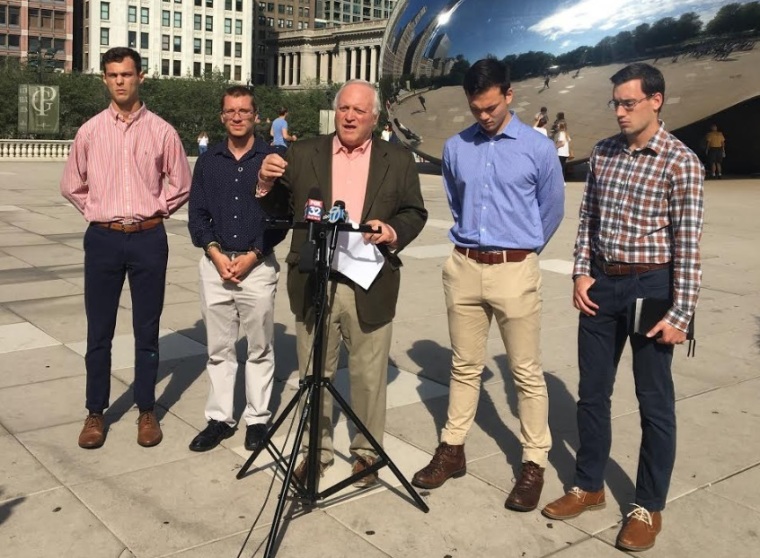Chicago settles with Wheaton College students in evangelism lawsuit

(CP) After years of litigation, the Chicago City Council agreed to pay over $205,000 to settle a lawsuit with four Wheaton College students who argued their religious freedom was restricted when they tried evangelizing at the city's Millennium Park.
The city council approved the settlement at its meeting on Wednesday, accepting the recommendation of the Committee on Finance to pay the students $5,000 in damages each and over $185,000 in attorney fees. The settlement was accepted by a vote of 48 to 0.
The case dates back to 2018 when four Wheaton College students with the Chicago Evangelism Team sponsored by the Office of Christian Outreach of the Evangelical higher education institution claimed they were prohibited by security from evangelizing at the 24-acre Millennium Park.
The students — Caden Hood, Matt Swart, Jeremy Chong and Gabriel Emerson — filed a federal lawsuit seeking an injunction against a set of rules that regulate legal activity within the park. The lawsuit singled out a restriction banning "disruptive conduct" restricting activity that "interferes with or disrupts another visitor's peaceful enjoyment of performance or amenity in the Park."
The Chicago Evangelism Team ventures into the city to share the Gospel with those they encounter in the streets, subways and parks. The four students believe it is essential for Christians to share their faith with others.
In 2020, Judge John Robert Blakey, an Obama appointee, sided with the students, saying the city's defence of its rules "rests upon its misapplication of the government speech doctrine."
"The City contends that, by curating art and programming, it exercises permissible government speech making its restrictions immune to First Amendment attack because the rules further such government speech," the judge wrote. "This Court rejects the City's flawed reading of this important doctrine."
The students were represented by the law firm Mauck & Baker. After the judgment, the city rewrote its rules for Millennium Park to allow the evangelists "more freedom to preach and hand out literature," the legal group states on its website.
Associate attorney Sorin Leahu previously told The Christian Post that the students don't use any form of amplification or shout when they evangelize.
"They do what you would expect anyone going to the park to do: have conversations with people, engage people, hand out literature," Leahu said. "It is nothing disruptive to what anyone else is doing in the park."
"By its nature in history, public parks have always been completely open to speech activities," he added.
In April 2019, the Department of Cultural Affairs and Special Events, which oversees Millennium Park, created new rules for the park.
One of the new rules separated the park into 11 "rooms," or sections, and prohibited "the making of speeches and passing out of written communications" in 10 of the 11 separate areas.
Under the rules, people could only deliver speeches and hand out papers in Wrigley Square, the park's northwest corner.
Lead attorney John Mauck called the revised rules "problematic" because the sculpture Cloud Gate, also known as the "Bean," was an area that was off-limits.
"The Bean is one of the highest tourist attractions in the United States. ... That's where you want to get your message out," he told The Chicago Tribune.
"This isn't just about evangelists," he added. "This is for politicians campaigning, political activists and whoever else wants free speech."











